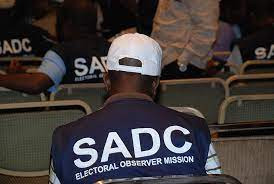
FOLLOWING the unprecedented adverse opinion on the electoral process in Zimbabwe by the Southern Africa Development Community (Sadc), the Zimbabwe Electoral Commission (Zec) announced the presidential election results, declaring President Emmerson Mnangagwa winner.
Sadc raised concerns about allegations of voter intimidation by the infamous ruling Zanu PF party’s affiliate, Forever Associate Zimbabwe (Faz), uneven playing field and vote rigging. However, Zanu PF and its supporters have publicly lambasted the regional body’s preliminary report. It is, therefore, imperative to assess the impact of Sadc’s stance on the legitimacy of the elections and the future of Zimbabwe.
It has always heavily relied on the regional bloc for support in times of crisis and for regional trade. Zimbabwe is a founder member state of Sadc, having been one of the nine countries that formed the Southern African Development Coordination Conference (SADCC) in Lusaka, Zambia, in April 1980.
SADCC transformed into Sadc in 1992 with the signing of the Sadc Treaty in Windhoek, Namibia. There is an ongoing debate on whether Zimbabwe can survive without Sadc and if the country should consider exploring alternative partnerships. The legitimacy of an election result being challenged can have a significant impact on Zimbabwe. When regional bodies question the fairness and transparency of an election, the immediate effect is the erosion of public trust in the electoral system.
Elections are the cornerstone of democracy, and when doubts are cast on their credibility, it can erode confidence in the government and democratic institutions. This lack of trust can lead to widespread disillusionment, apathy, and a decline in civic engagement, and potentially lead to heightened tensions and conflicts. These conflicts, physical or not, can destabilise the country and have long-lasting repercussions on its governance and social cohesion.
Furthermore, challenges to the legitimacy of the election result may create divisions between member states. Regional bodies often represent specific countries, and when they raise concerns about the election process, it can worsen existing tensions among member countries.
As of Tuesday only a few countries, regional political parties and leaders had issued out congratulatory messages to the president-elect, Emmerson Mnangagwa. These include Namibia, Belarus, China and Tanzania. South African President Cyril Ramaphosa and his ruling African National Congress (ANC) had also congratulated Zanu PF and Mnangagwa. The impact of legitimacy issues being raised by local and international observers extends beyond domestic concerns. Internationally, the legitimacy of an election result plays a crucial role in diplomatic relations and foreign policy.
If Sadc questions the fairness and credibility of an election, it can cast a shadow of doubt on the legitimacy of the elected government.
- Cheeky armed robbers jailed 10 years each
- Dangers of Arab Spring in SA
- Dangers of Arab Spring in SA
- Ramaphosa faces ANC leadership challenge
Keep Reading
While the ruling government already has a tag on its back from western countries, the adverse opinion on the recent elections will only strain further the relations and squeeze the economy more. It is imperative to note that Sadc has played a crucial role in preventing or de-escalating conflicts in the region. The organisation's commitment to peaceful resolutions and its interventionist approach have helped maintain stability in southern Africa.
Without Sadc support, Zimbabwe may face increased vulnerability to internal and external threats. The organisation has also provided financial assistance to Zimbabwe during times of economic crisis, and mediation during the 2008 bloody political crisis. Sadc’s intervention brought political and economic stability. Ultimately, the question of whether Zimbabwe can survive without Sadc is complex and multifaceted. While there are arguments on social media in favour of exploring alternative partnerships, the country should carefully weigh the potential risks and benefits.
Zimbabwe should also consider working within the existing framework to enhance Sadc's effectiveness and address the country's underlying challenges. A balanced approach that combines both internal reforms and strategic partnerships may provide the best path forward for Zimbabwe's long-term survival and growth.
- Duma is a financial analyst and accountant at Equity Axis, a leading media and financial research firm in Zimbabwe. — [email protected] or [email protected], Twitter: TWDuma_







